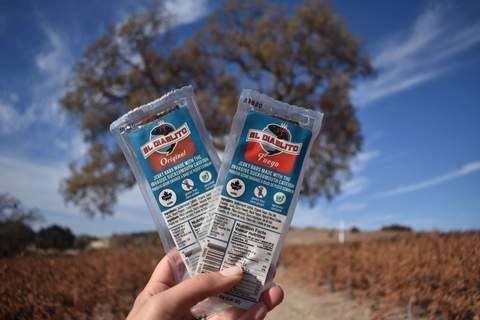Food as a Restorative Solution
When life gives you lemons, make lemonade. Coined by Elbert Hubbard in 1915, the adage encourages us to turn the sour of life into something sweet and palatable. Shrimply Blue’s mission to reverse Lake Tahoe’s declining water clarity by turning Mysis into delicious pet treats is a real-life example of the concept. Furthermore, it illustrates the power of food as a restorative solution.
Source: Gabriel Jimenez on Unsplash
What do we mean by ‘restorative solution’?
Restorative means having the ability to restore health, strength, or a feeling of well-being. It also takes sustainability a step further by aiming to rehabilitate rather than just maintaining conditions or preventing further damage.
Shrimply Blue’s efforts to restore Lake Tahoe’s ecosystem, for example, may also result in the creation of jobs related to Mysis retrieval, a welcome benefit (we also think their dogs will benefit from the nutritional value of our treats!).
Following are a few examples of companies using food as a restorative solution:
Acari Fish
Overfishing is a serious concern, with the climate crisis only compounding the risks. According to the World Wildlife Fund, more than “one-third of all sharks, rays, and chimaeras are now at risk of extinction because of overfishing”. El Diablito works with fishermen in Mexico to harvest the invasive Acari fish and turn it into meaty jerky. El Diablito’s jerky is shelf-stable and clean label; each harvest helps rebuild native wild fish stocks.
Source: Acari Fish
The jerky’s name is a reference to Acari fish, known colloquially as “devil fish” in Mexico. This armored fish originated in South America, but found its way to Mexico and other tropical waterways, now representing up to 70% of the fish caught in those areas. El Diablito works directly with fisheries by providing “the training and basic equipment necessary...to kickstart their own small-scale production facility”, then purchases 100% of their production. In addition to helping rebuild native fish stocks affected by this invasive fish, the company’s structure results in higher earnings (about 40% more) for the fishers involved in retrieving the Acari.
To learn more about El Diablito (and the company’s new pet treats!), visit https://acarifish.com/pages/about
Source: Barnana
Barnana
Regeneration International defines regenerative agriculture as follows:
“Regenerative Agriculture” describes farming and grazing practices that, among other benefits, reverse climate change by rebuilding soil organic matter and restoring degraded soil biodiversity – resulting in both carbon drawdown and improving the water cycle.
Practicing regenerative agriculture, Barnana takes organically grown bananas and plantains that would have otherwise been discarded and turns them into snacks. Similar to El Diablito, the company partners with local stakeholders, reliably buying their fruit and supporting them in earning organic certifications. Barnana itself is a certified B Corp, representing its adherence to “the highest standards of verified social and environmental performance.”
Learn more about Barnana here: https://barnana.com/pages/our-story
Figure Ate
Figure Ate Foods, a subsidiary of the regenerative agriculture-focused non-profit White Buffalo Land Trust, sells persimmon vinegar with the aim of improving the health of its customers and the Earth. Figure Ate describes persimmons as a “restorative” food, supporting heart, liver, and skin health along with digestive function. While persimmons are not necessarily an invasive fruit, proceeds from sales of the vinegar directly support White Buffalo Land Trust’s mission of advancing regenerative agriculture. The Trust’s acquisition of 1,000 acres in Southern California represents its commitment to restorative agriculture; the land will serve as an example for other producers to learn from. Similar to Shrimply Blue, White Buffalo Land Trust works closely with scientists to understand the complexities of the ecosystems in which it works.
Source: Figure Ate Foods
To learn more about Figure Ate Foods and White Buffalo Trust, visit https://www.whitebuffalolandtrust.org
What restorative food companies do you support? Tell us here or on our socials!




